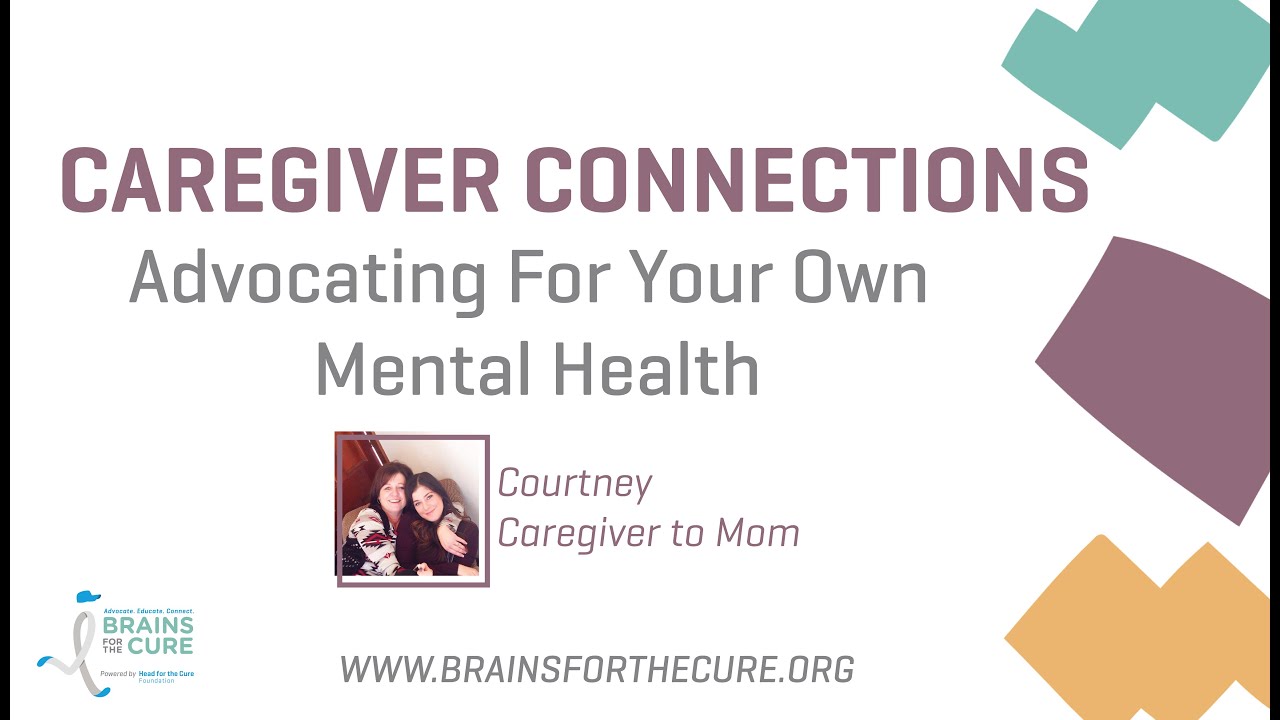April 11, 2024
Nurturing Mental Health: Insights and Strategies from Patients and Caregivers

A brain tumor diagnosis brings forth a mass of challenges, not only physical but also emotional and mental. Managing your mental health becomes a crucial aspect of the journey for both patients and survivors. In this article, we explore effective strategies to nurture and prioritize mental well-being amidst the complexities of brain tumors.
Acknowledging Emotions:
It’s essential to recognize and validate the range of emotions that accompany a brain cancer diagnosis. Allowing oneself to feel and express these emotions can be a cathartic and essential step in maintaining mental health.
- DJ S. (Survivor) Says, “It’s a battle. Ups and downs come every day, but I have found that the more open I am about my fight, the easier it is for me.”
- Tom S. (Survivor) Reflects: “I visit the future, but I don’t stay there. No amount of worry changes any. Be informed and enjoy family and friends. Live life as you want to, and don’t let a tumor steal a moment of your time.”
Building a Support System:
Cultivate a strong support network that includes friends, family, support groups, and healthcare professionals. Sharing your feelings and concerns with trusted individuals can provide comfort and understanding.
- Karen K. (Caregiver) Shares: “I seek personal counseling and call my friends, many of whom also are caregivers.”
- Allie M. (Survivor) Recommends: “Talk it out. Find the right people for the right moment and feeling. Sometimes it’s my ladies’ group, sometimes my family, and sometimes a friend who’s experiencing all of this too.”
- Janelle S. (Caregiver) Expresses Gratitude: “I have the best friends in the world. My husband/patient had a ton of people he worked with, old friends, neighbors, and family who supported him a great deal. We were fortunate.”
Don’t hesitate to engage with mental health professionals such as therapists or counselors who specialize in oncology. Professional guidance can offer coping strategies and a safe space to process complex emotions.
- ToNhu T. (Survivor) Shares: “With a therapy that really helps me to see life and my diagnoses from a positive standpoint.”
Incorporate mindfulness practices and meditation into your routine. These techniques can help manage stress, improve focus, and foster a sense of calm amidst the challenges of a brain cancer journey.
Regular physical activity has been shown to have positive effects on mental health. Whether it’s gentle yoga, walking, or tailored exercises, staying active can contribute to overall well-being.
-
- Lisa J. (Survivor) on Coping Skills: “This has been my biggest struggle. I struggle with the trauma from the entire experience and how, 10 years later, I am still not ‘normal.’ With that being said, I have developed lots of good coping skills, including therapy, working out, downtime, self-care, and monthly massages to keep my mental health in check.”
Explore creative outlets such as art, music, or writing. Engaging in expressive activities provides an avenue for self-expression and can be a therapeutic release for emotions.
- Ed D. (Caregiver) Finds Solace: “Just listening to Jimmy Buffett’s music helps with the bad and good times and keeps me sane.”
Maintaining Routine:
Establishing and maintaining a daily routine can provide a sense of stability and predictability. Structure contributes to a feeling of control, even during uncertain times.
Setting Realistic Goals:
Establish achievable goals and celebrate small victories. Accomplishing even minor objectives contributes to a sense of accomplishment and boosts morale.
Connecting in Support Groups:
Reach out to brain cancer survivor communities or support groups. Sharing experiences with others who have walked a similar path can foster a sense of camaraderie and understanding.
Cultivating Hope:
Foster a mindset of hope and optimism. Engage in activities that bring joy and focus on the positive aspects of life. Cultivating hope can be a powerful tool in navigating the challenges of brain cancer.
Prioritizing mental health is an integral part of the journey for both brain tumor patients and survivors. By embracing a holistic approach that includes emotional expression, support systems, mindfulness, and creative outlets, individuals can navigate the complexities of their mental well-being with resilience and strength.